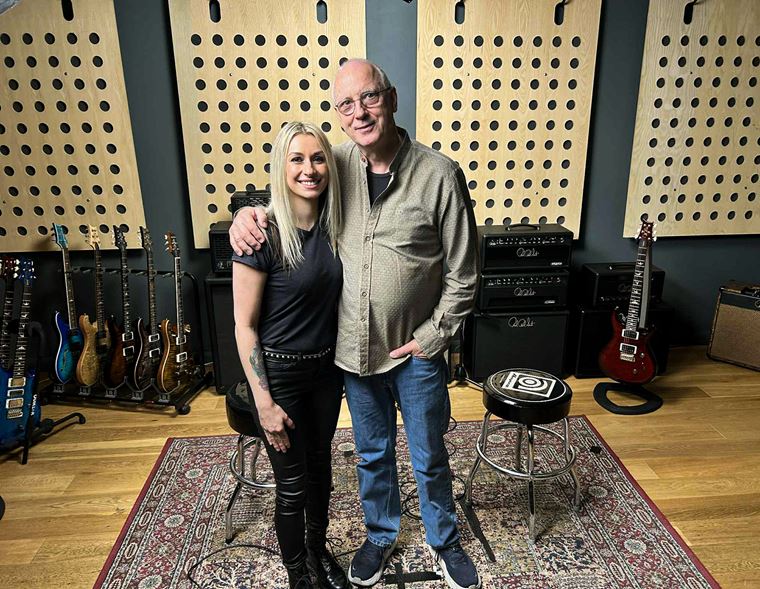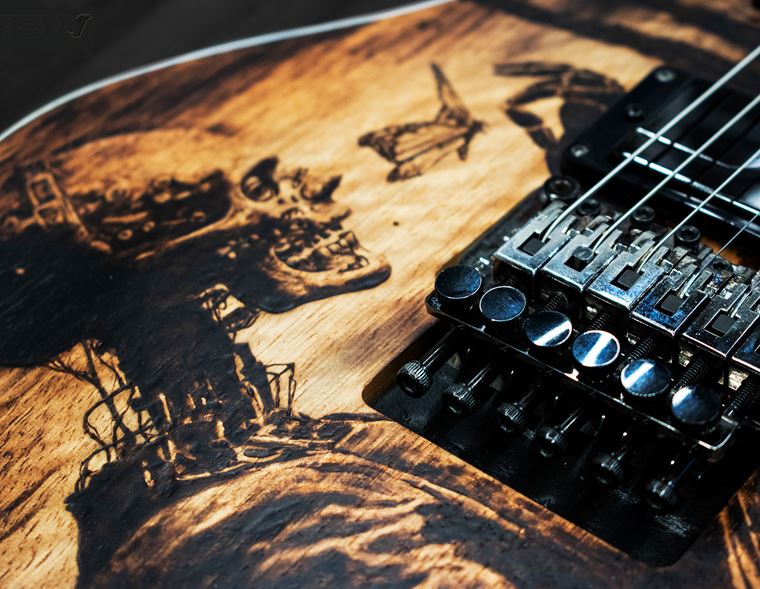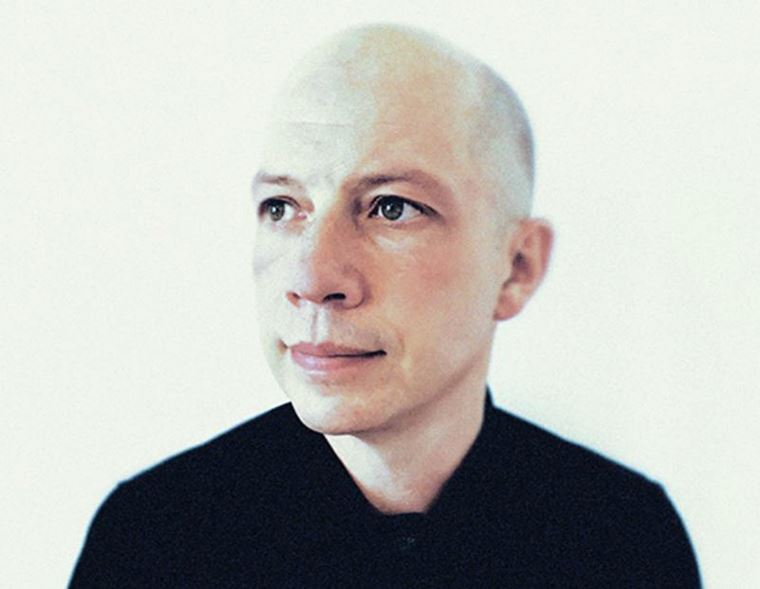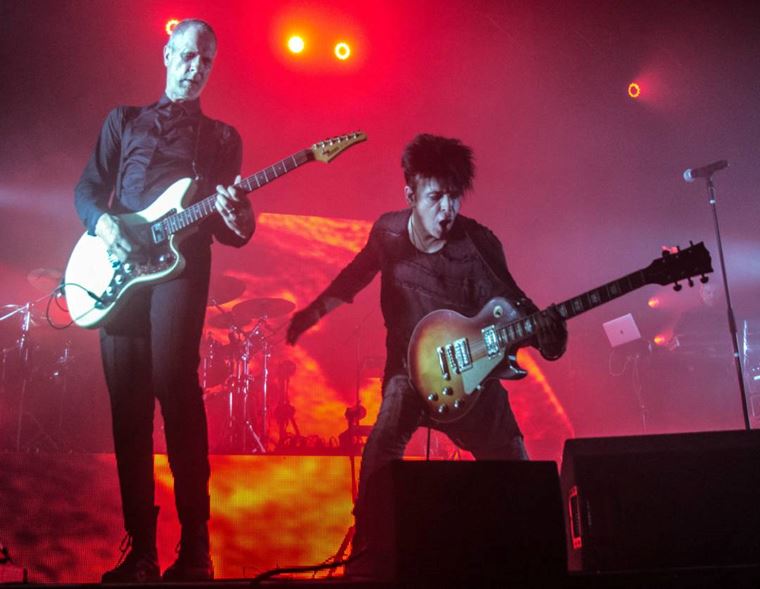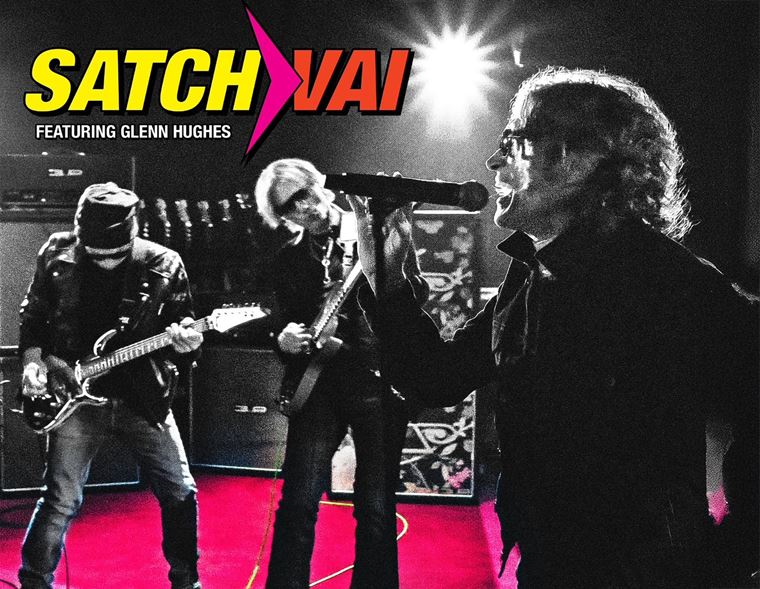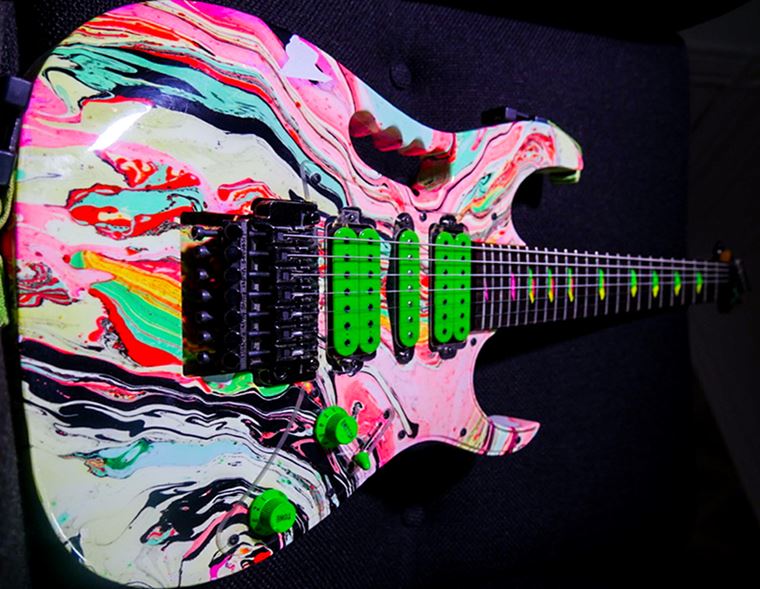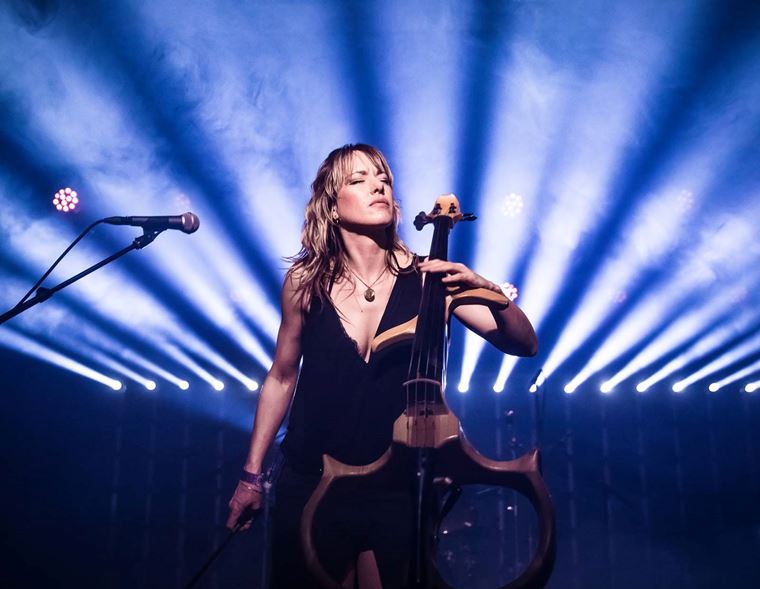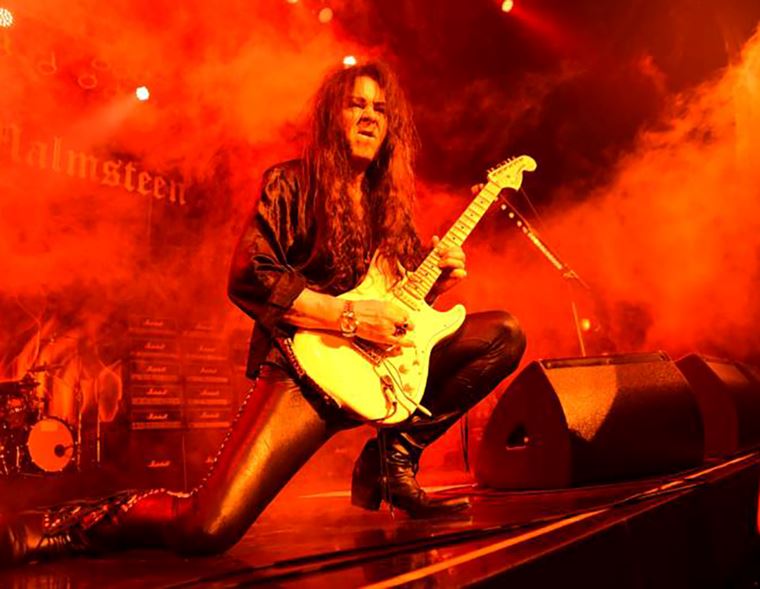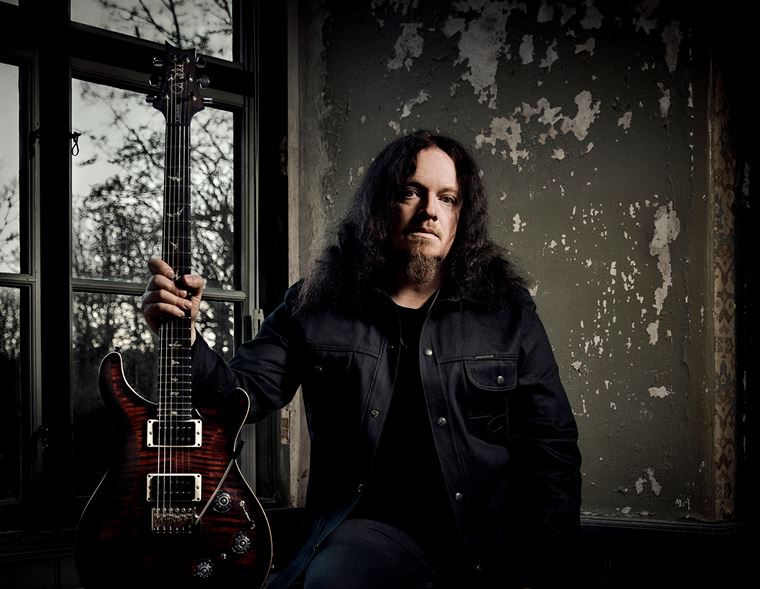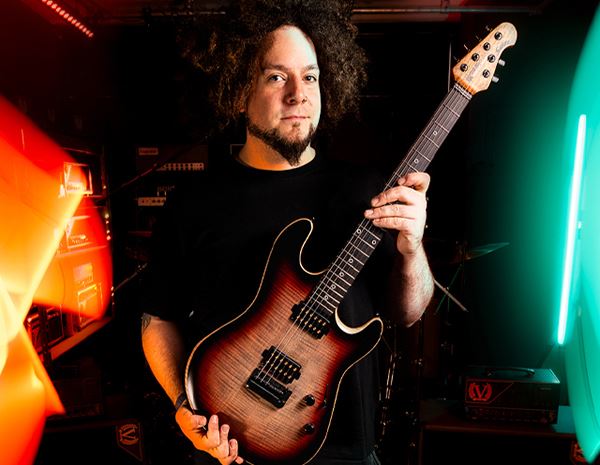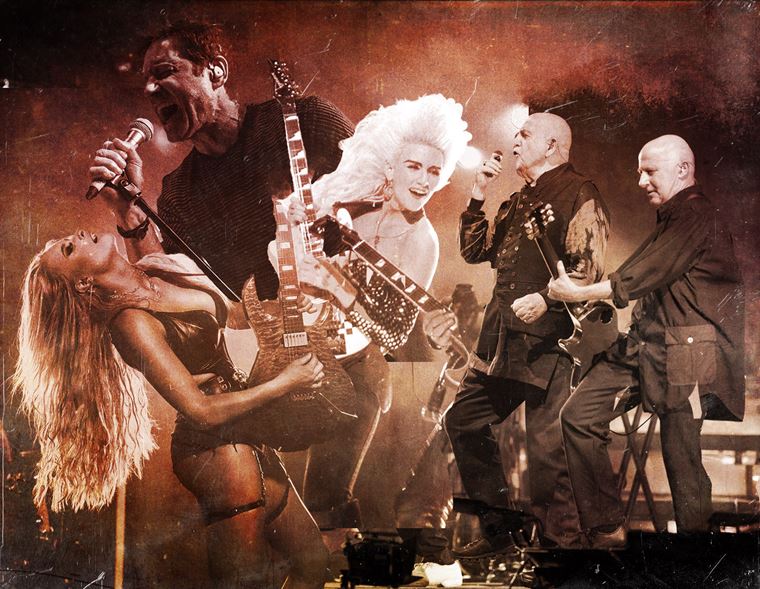TONY LEVIN Interview: King Crimson, Peter Gabriel and Having Fun!
Tony Levin is one of the most respected bass players in the world. He has appeared on hundreds of recordings with people like David Bowie, Pink Floyd, Lou Reed, John Lennon and Alice Cooper. Perhaps his most famous pairings have been with Peter Gabriel (Tony has appeared on the vast majority of Gabriel's work since leaving Genesis) and King Crimson, with whom he has played since 1980 and is currently touring the world with.
We managed to track down this most busy and influential of musicians briefly in between tours in South America and the UK to share a few words with us about playing, attitude, thinking outside the box and how Music Man Stingray basses are more 'rock' than the rest! We are very happy and honoured to complete our two-part King Crimson Interview special with this illuminating conversation with Tony...
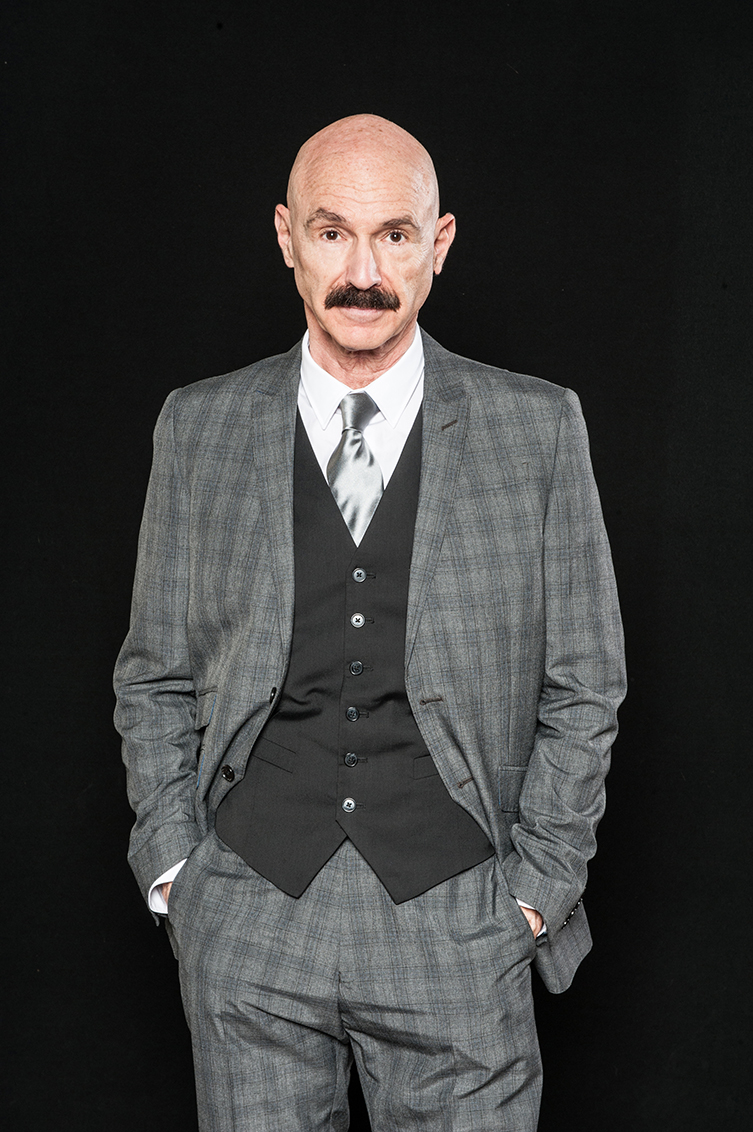
(Photo by Scarlet Page)
Hi Tony, thank you so much for agreeing to take some time out and talk to us! You must be one of the most experienced musicians around so there’s a lot we’d like to ask you! Starting at the beginning though: although you are a talented cellist, keyboardist and vocalist, your primary instrument is overwhelmingly the bass. Double bass was your first instrument, is that correct? What drew you to the bass in the first place?
I studied piano as a youngster, and when my parents suggested I try an instrument. I chose the upright bass. I don't really know what made me choose it, I just liked the sound, I guess.
After your formal musical education, you played in various bands in New York. How did this progress to the session work?
Just looking for work, I happened on a little studio work. At that time there was a lot of studio work to be had – far different than now. So, having met some studio players, I began to get occasional calls and was glad to have a little income, because the rock bands I was rehearsing with didn't do shows, and had no income at all.
You’ve been an associate and friend of Peter Gabriel’s since the late 1970s. Is this how you first met Robert Fripp (who played guitar on Gabriel’s eponymous debut solo album)?
I met Robert and Peter on the same day, in July '76, when producer Bob Ezrin brought me in to play on Peter's first album.
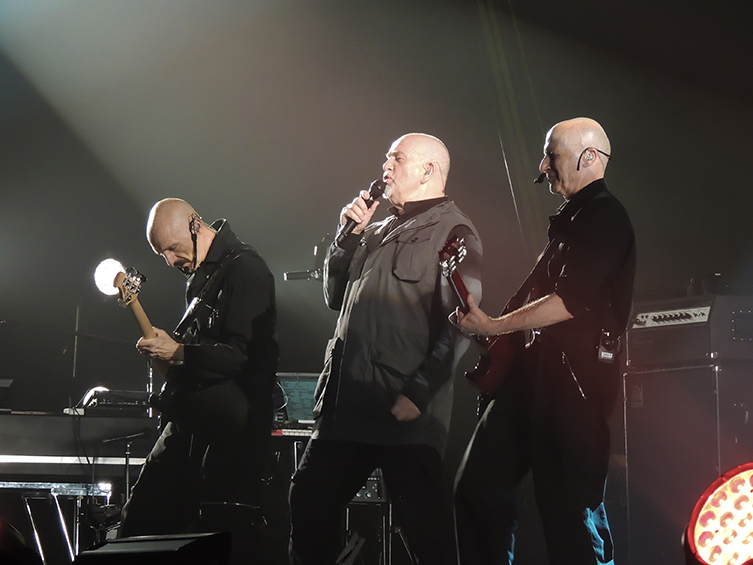
Peter Gabriel seems to be an intensely creative man: how is the experience of working in the studio with him?
There have been a lot of albums through the years and in a number of different studios. Peter is, as you know, very creative, and always has his ears open for new ideas. We sometimes spend quite a while moving in directions that don't end up on the album, but always a musical adventure and always a creative endeavour.
On a track like ‘Big Time’ from the album So, you play a pretty incredible and very memorable bass part. Is that something Gabriel gives you space to create and contribute or was it dictated to you during the session?
I had the idea to have Jerry Marotta, the drummer, drum on the bass strings, as had been done on a song, 'Big Noise from Winetka' when I was a kid. Peter, of course, went for that idea.
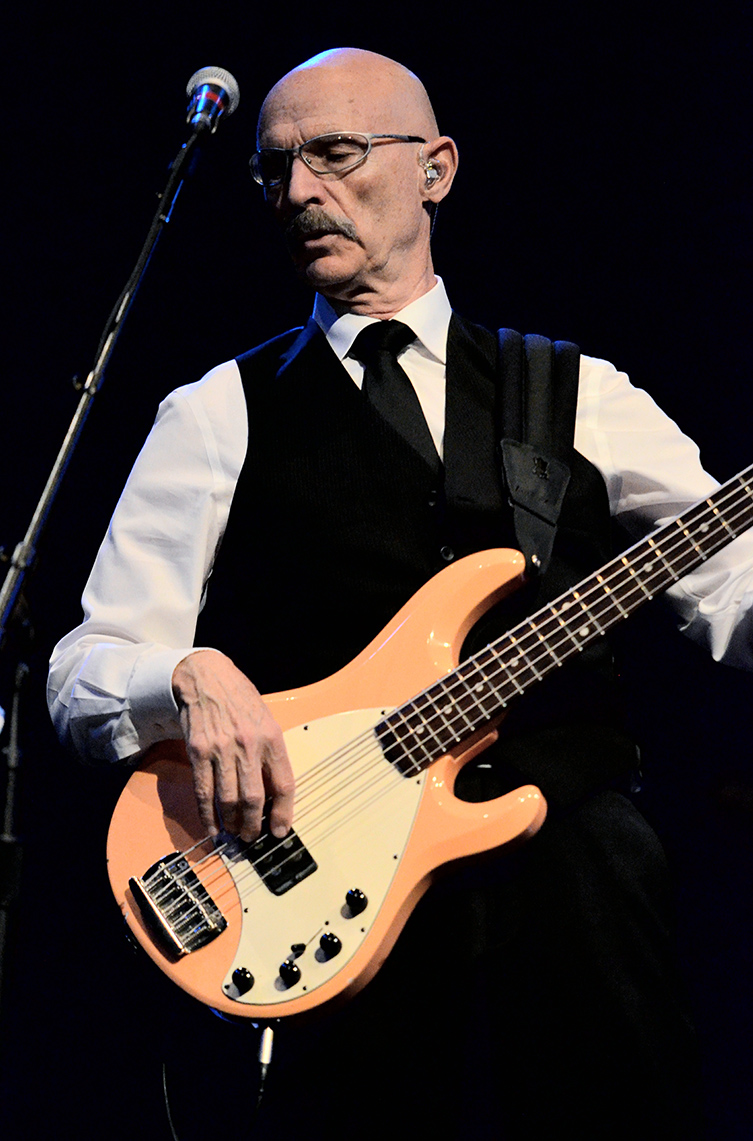
(Photo by Alan Jones)
You have played on over 500 sessions over the years, working with some amazing artists including David Bowie, Pink Floyd, Lou Reed, John Lennon and Alice Cooper. In your experience, what are the most important personality traits to have in a session musician?
I never thought about that... it seems the guys I've worked with have a pretty wide range of personality traits. If I had to generalize, I'd say if you play great, then people will tolerate your attitude, whatever it is.
King Crimson has been in your life for nearly 30 years. In Crimson you are a band member rather than session player: how do you find that type of elongated experience compared with quick pieces of session work?
It's very different, to be sure. And it's great to have that kind of musical outlet. More time to work on your parts, and your playing. An environment, at least in Crimson, that encourages you to break away from the way you've played before, to try new techniques, sounds and approaches to the music. In some ways, it's the opposite of the craft of studio playing, where you want to latch right onto the right part. Being in a band allows r&d time, which as an artist, you need.
How does the writing process happen with Crimson? Are many pieces partially written already or do you all bring things into the studio?
It's varied a lot through the years, from writing together to people bringing in a finished piece for the others to play to. What's in common has been a respect for all the players, so as bassist, I'm allowed to pretty much come up with my own approach to the piece, but also give a lot of consideration to the ideas of the others.
Live, Crimson currently have three drummers, all of whom are incredible. The bass player traditionally locks in with the drummer: how do you deal with three of them?
That's a tricky thing, and, yes it's different than the traditional locking in. They have strategies that vary quite a bit, even within one song, so there might not be any 'locking in' or which drummer has the bass drum pattern might vary in different sections. Playing live we make use of our own personal mixing boards, which allows me to constantly shift which drummer I'm hearing well and which to turn down because they're in a different time signature!

It must be super-loud on stage: when speaking to Jakko, he mentioned that digital amp modelling was the only feasible solution to his live rig. Is that the same with yourself?
It's not super loud except in the front row where the drummers are. Because the guitarists and I are using in-ear monitoring, we don't need loud amps, so there isn't that constantly rising volume situation that we used to have. Amp modelling is useful, for one reason because it eliminates the factors of mics and leakage and lines cutting out.
That must really help on such a busy stage. So, let’s talk basses! You’ve been seen with lots of models over the years but you seem to favour Ernie Ball Music Man basses: what is it, in particular, you love about them?
From when I first tried one - long, long ago - I felt that the StingRay had a great rock sound. That makes my job easier, to try to tweak the sound and get it right for the situation... with a lot of other basses there were good qualities, but I couldn't make them rock out! Well, I can do with an amp, but in the studio, that's not always an option. I should also say that, with the 3 band EQ and pickup selector, there's some variety of sound options.
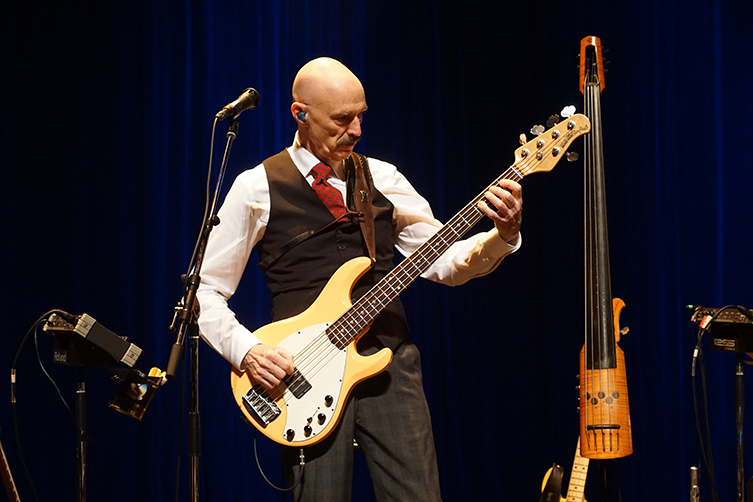
(Photo by Trevor Wilkins)
What is your preferred string gauge?
It varies. Usually, I start a tour with medium gauge, but as I play nightly I get stronger, dig in harder, and eventually switch to heavy gauge.
For your Crimson gig, do you use much in the way of effects?
That also varies from tour to tour. A number of pedals, of course, but nothing like the 30 I used to have going in the 80s with the band.
Do you play any other instruments during the course of a King Crimson performance?
I play the NS electric upright on a few songs – sometimes with a bow, sometimes plucked. In earlier tours, I was switching between Music Man 4 strings and 5 strings, and between my late 80s Barbie 5 string and my very vintage 80 4 string. Lately, I've found the new StingRay5 can cover those tonal ranges so I'm only using that this year.
And, I play the Chapman Stick on a number of pieces.
Ah yes, the Stick! You are probably the most famous user of the Chapman Stick: although it tends to be bass players who gravitate towards it, it’s rather more than a bass: what is your relationship to the Stick? Musically, how does it change your mental headspace?
It does change my headspace, and that's a great thing. The tuning is different, which is great to help me come up with not the usual part. And the sound, usually quite percussive, has a cool element to it, and again it's different than the same old bass sound, so, starting with the Discipline album, I've found it ideal for progressive music.
In other settings, like the Stick Men band, it's great for writing, with 6 guitar strings, 6 bass strings, and a variety of techniques you can use for playing them.
Does the Stick need a separate preamp/amplification system to your standard bass rig?
The bass side goes into my bass rig, though I then kick in different compression. The guitar side needs its own amp, for which I use the Kemper Profiler with its variety of amp settings including the ones I modelled from my own guitar amps.
You mentioned another band you play in there called Stick Men. That's with Crimson drummer Pat Mastelotto and Markus Reuter, right? How does the focus and intention of this music differ from Crimson? Is it difficult to fit projects like this around King Crimson tours?
We do indeed book around the Crimson tours – that's not hard with both Pat and I on the same Crimson schedule. Stick Men, of course, plays much smaller venues and does one nighters instead of the multiple nights stands Crimson can do. It's a lot of fun, it's very challenging with just 3 players, and it's a nice outlet for our writing. Am I influenced by Crimson in the writing for the other band? Of course.
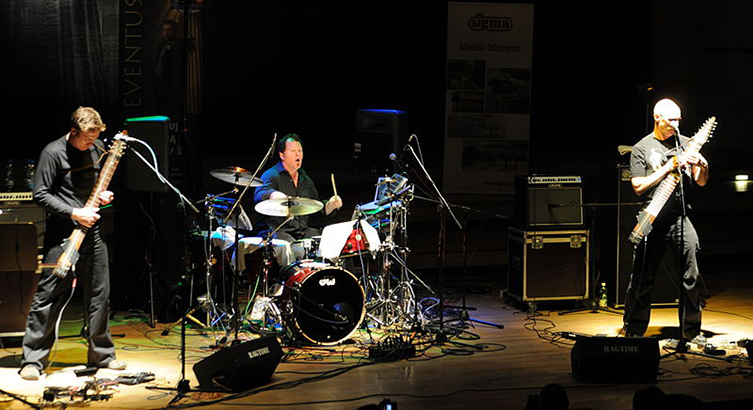
Despite the fact that you are obviously an enormously talented and capable musician, King Crimson’s music can be extremely demanding to perform: do you find that you still need to put in lots of practice?
I do indeed need to practice a lot for the band. And it's very challenging in other ways too. But I like being challenged, I like trying to improve my playing and my sound and feel – so it's a challenging but great situation to be in the band.
How do you handle the, let’s say, ‘non-standard’ time signatures of many of the songs? Do you have any tricks or do you count?
I tend to not count, but to try to feel the time signature – often not paying attention to what it even is. I think that's a fairly normal bass player thing. Of course, some of the Crimson and Stick Men pieces have different players playing in different time signatures, and it's necessary to sometimes count it out. Generally, there really aren't any rules. I try to find approaches that work for the music.
How do you find touring these days compared with, say, 30 years ago?
I'm actually a bit busier now than I was then. It's hard to sum up what's different – flying is more of a pain. Travelling is harder when you're older, but though gruelling on some tours, it's kind of easy on some others. What's unchanged is that those 2 or 3 hours each night, that you get to share your music with an audience, makes the travel hassles worth every minute.
You’ve invented amazing things like Funk Fingers and you play amazing music in other-worldy time signatures when lots of seasoned musicians are happy to go through the same well-worn motions: do you ever think you’re ahead of your own time?
Frankly, I don't think about myself much, except when doing an interview and having to answer questions. Mostly, like most people, I think, I'm focussed on the job I'm doing, on the music I need to get up to speed on, and on what music is coming up next that I'll have to get ready for.
Some progressive musicians have an aversion to the term ‘Prog’ when applied to their work: how do you feel about the term ‘prog’ in relation to what you do?
I don't love the term, because it often refers to the music of the progressive bands in the 60's and 70's, and to playing music like that. But many of those same bands attempted to be 'progressive' even after setting a style, and like Crimson, keep trying to come up with new music, not repeat the old style. So I consider that 'progressive' and feel that to be a better description.
What makes a great bass player?
No one thing. I love players who find the exact right notes and play them in exactly the right way. Seems it's easy, but only some players do it. But I also love players who break the rules and show the rest of us that there are worlds out there of different ways to approach the bass. So you could say I love grounded bassists and I love groundbreaking bassists!
On tour, do you find photography a great way to relax and be expressive?
Not to relax, but it's a hobby I'm passionate about. It's a rare and valuable situation to be behind the scenes in a band, and also to take photos from the stage. I've been working at it for a lot of years, and in my opinion, I do sometimes get lucky and get some shots that express the way it really is on the road. So it's a satisfying outlet, and also really fun to share with the fans, on the web, the way it looked and the way they look at our shows.
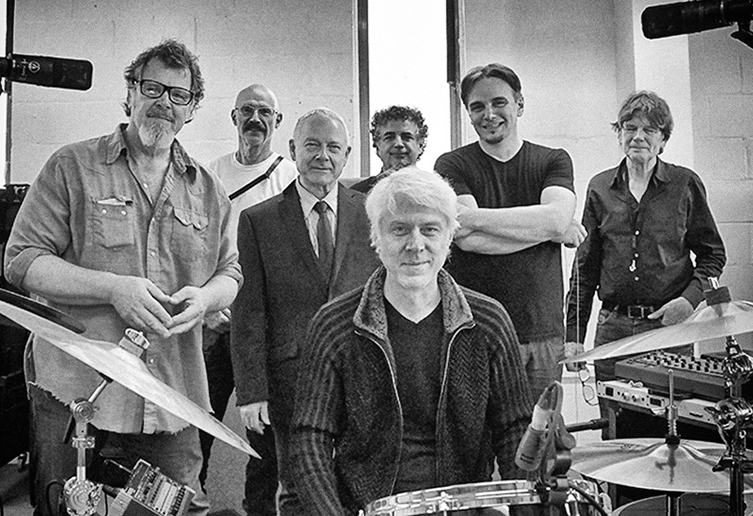
You are a very busy man: after the current King Crimson tour, what is next for you?
Very lucky to be busy nowadays, and grateful for it. In January I'll tour with Levin Brothers, a jazz trio, on the W. Coast of the U.S. Then Feb I'll tour a bit with a new lineup, Phil Keaggy, Jerry Marotta and myself. In March I'll try to finish up some musical and photographic projects before starting up rehearsals with Crimson in April, and then more touring.
Finally, Tony, as a man who has played with a wide variety of the world’s greatest musicians and who is arguably one of the greatest bassists ever, what advice can you give to the musician reading this who maybe doubts his abilities or is afraid of committing to a life of music?
Hard to know what to say for advice, because I'm still learning myself what's the best manoeuvre in this ever-changing music biz. I and most of the players I've worked with just loved playing and went into music to have a chance to play, hopefully with good players. So, looked at that way, it's possible to have 'success' without having to find a hit band or becoming really busy. We all have moments of self-doubt, and we all have times when, alas, we're kicked out of a band or an album, and it's easy to feel you're just not good enough. That's happened to me, and to most of the best players I've known – so maybe keep that in mind if some rough times come your way – try to not take it personally, keep plugging away, and working to play better, and some wonderful music might come your way.
Tony, it's been wonderful talking to you. Thank you very much for your time and all the best for your forthcoming tours!
King Crimson are on tour just now. Keep up with them here. Check out Tony's on-the-road photography at his website here.
We'd like to thanks Tony for his time and graciousness. We'd also like to thank Billy James for helping set up the interview.


